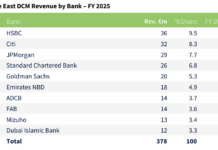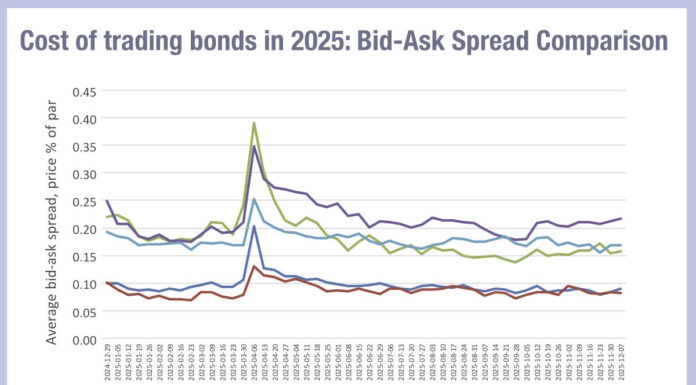French Prime Minister François Bayrou’s call for a no confidence vote was scheduled for the 8 September late on Monday 25 August. Aiming to support its government and austerity budget, the announcement has resulted in a sharp deterioration in the French to German government bond yield spread, with yields in 10-year maturities moving from 65 basis points to 82 basis points on 27 August.
France is heading into a crucial no-confidence vote on 8 September that could see the government forced to resign – a move not seen by a French government since a similar legislative showdown was attempted by Pierre Mendes France in 1955. The vote seems all but lost as the socialist, communist and far-right parties, representing 270 of the 577 deputies in parliament, have already declared their intention to vote against the government.
The stress is already being priced across bond markets and the euro. French assets are already pricing this increased stress as desks brace for heightened volatility and weigh up the risk of a government collapse, fiscal slippage, and looming credit rating reviews.
According to MarketAxess, the 10-year OAT-Bund spread had been widening steadily since mid-August, moving from around 65 basis points (bps) on 15 August to 70 bps by 25 August. Then, in late trading that day, spreads spiked sharply: “Around 4pm UK time, spreads rose to 75bps by end of day, and settled around 77bps yesterday,” MarketAxess observed. The sharp move illustrates how political headlines are translating directly into risk premia on French debt.
On2 September at midday, spread was 80 basis points having reached 82 bp the 27 August and at the top of the range since instability started in 2024 when Frech president Emannuel Macron dissolved parliament.
Citi Research, led by Aman Bansal, in their morning note of 2 August pointed out that the outcome of the vote could also immediately influence sovereign ratings.
Analysts said: “This week’s surge in French political risk doesn’t bode well for the upcoming rating reviews from Fitch (12 September), Moody’s (24 October) and S&P (28 November).”
They added: “ [Fitch’s rating] could be at an increased risk of a downgrade if the government fails to survive the confidence vote earlier that week on 8 September that’s tied to its spending cuts proposal, as that would confirm that there is no political appetite on the right or the left flanks of the political spectrum for any fiscal consolidation.”
Such a move could spill over into French Sovereign, Supranational, and Agency debt (SSAs), including agencies such as SFIL and Agence France Locale, whose ratings and bank treasury risk-weights are closely tied to the sovereign.
The euro, already under pressure from softer growth data and ECB policy uncertainty, is vulnerable to a French political risk premium.
Furthermore, Citi noted: “An election majority for the far-right or the left-of-centre coalition would imply looser fiscal policy and likely a reversal of the 2023 pension reform.
French prop trader for First New York Securities and educator Gregoire Dupont, looked further down the line, highlighting how fluid and volatile the situation could become. He told The DESK: “We are back to the usual social French ‘Prise de la Bastille’. If history repeats itself, the general strikes of 1995 could be a good reminder that volatile conditions and stressed market conditions could well last into 2026.”
©Markets Media Europe 2025












